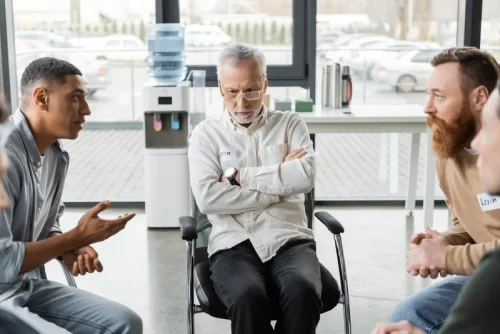
Combining these drugs with antiplatelet or anticoagulant drugs may also increase your bleeding chance. Various foods, herbs, and medications can interfere with blood thinners. These substances can make the drug more or less effective than your dosage would suggest.
Side effects of mixing alcohol and blood thinners
Alcohol consumption has various effects on the human body, including its impact on the blood. Understanding these effects is crucial in debunking the myth surrounding the idea that alcohol can thin your blood. Let’s explore the immediate and long-term effects of alcohol on blood. It’s essential to differentiate is alcohol a blood thinner between the effects of alcohol on blood flow and the actual thickness of the blood. The temporary increase in blood flow caused by alcohol may have various short-term effects, but it does not change the inherent viscosity of the blood. Drinking grapefruit juice, cranberry juice, and alcohol during treatment with warfarin can increase your risk of bleeding.
What foods are good to eat when you are on blood thinners?

In conclusion, alcohol does have a blood-thinning effect, but it’s not the same as the effect of medications like aspirin or warfarin. While moderate alcohol consumption may be safe for most people, excessive alcohol consumption can lead to dangerous levels of blood thinning and other negative health effects. As always, it’s important to drink responsibly and in moderation.

Can you eat bananas while taking warfarin?
If you or someone you know is struggling with alcohol-related health issues, it’s crucial to seek professional guidance and support. Blood clotting, also known as coagulation, is a complex process that helps to prevent excessive bleeding when a blood vessel is damaged. It involves a series of steps that result in the formation of a blood clot, which seals the injured blood vessel and promotes healing. For example, people with liver problems may need to limit their alcohol use more strictly. About 30 grams of alcohol — equating to two standard drinks — can lower fibrinogen levels, which can affect blood clotting.
Things like trouble concentration, slow reflexes and sensitivity to bright lights and loud sounds are standard signs of a hangover, and evidence of alcohol’s effects on your brain. When you drink too much alcohol, it can throw off the balance of good and bad bacteria in your gut. Your gut microbiome is a hotbed of bacteria that help keep your digestive system happy and healthy. The trillions of microbes in your colon and large and small intestines are critical to proper digestion. They also help fend off inflammation and support healthy metabolism.
- We took the Shinkansen train to Nagoya, then drove to Tokoname on the Chita Peninsula.
- If you have atrial fibrillation, your doctor may prescribe blood thinners (especially anticoagulant medicines) as part of your treatment plan.
- In tablet form, Warfarin is an oral anticoagulant commonly prescribed to prevent and treat blood clots in conditions like atrial fibrillation, deep vein thrombosis (DVT), pulmonary embolism (PE) and certain heart valve issues.
- But when you ingest too much alcohol for your liver to process in a timely manner, a buildup of toxic substances begins to take a toll on your liver.
- The most common side effect risk with any anticoagulant is bleeding.
Moderate alcohol consumption may lead to a slight decrease in blood pressure, while excessive alcohol intake can cause a significant rise in blood pressure. A person who is uncertain whether they can drink alcohol while taking blood thinners should speak with a doctor. Anyone who experiences severe symptoms, such as constant bleeding, intense pain, or dizziness, should seek emergency care.
Anticoagulants
Some medications work by thinning the blood to keep blood cells from sticking together in the veins and arteries. Others prevent blood clots by increasing the amount of time it takes for blood clots to form. These are known as anticoagulant and antiplatelet drugs, respectively. Blood thinners may be taken via mouth, vein, or skin to prevent blood clots, which might cause a heart attack or stroke. But, they may have serious side effects, especially if taken with other medications. These work by preventing or undoing coagulation, which is how your body starts to make clots.

- The grace to age in public; the grace to put art at the center of one’s life and not have to be a woman or a mother first.
- Wine, especially red wine, contains antioxidants that may help to increase levels of good cholesterol and prevent cholesterol buildup; this may result in decreased risk of coronary artery disease and subsequent heart attacks.
- Direct oral anticoagulants can sometimes cause indigestion or bleeding in your gastrointestinal tract.
If the https://ecosoberhouse.com/ universe gives an artist the nearly unlimited ability to become a conduit to the astonishing eternal mysteries, what a grinding check to her momentum when she bumps up against human-imposed boundaries of misogyny. From the stage, she can look out on a sea of bloody prairie maidens with flower crowns, mermaids with sharp teeth, weeping martyrs, witches in purple silken cloaks, Jesus, tattered ghosts, all images from her songs and videos. Autumn de Wilde, 54, first directed Welch in the 2018 music video for “Big God,” which is shot as though in outer space, on a stark black stage in a shining one-inch pool of water pierced with high-contrast light. As Welch sings, the dancers’ colorful veils darken as they get wet, then are discarded, until at last Welch levitates the dancers with her voice.

Alcohol has been found to increase platelet aggregation, meaning that platelets are more likely to stick together and form clots. This effect can potentially lead to an increased risk of blood clots, which can be dangerous if they travel to vital organs such as the heart or brain. Blood thinning, also known as anticoagulation, refers to the process of preventing blood clots from forming or existing clots from getting larger. This is crucial for maintaining healthy circulation and preventing conditions such as deep vein thrombosis (DVT) or stroke.
Finally, it answers some common questions about alcohol and blood thinning. Consuming alcohol will thin your blood, making you more susceptible to heavy bleeding or bruising if you experience an injury. The effects of alcohol on the blood are either short- or long-term. Short-term, you can expect an increase in blood pressure and higher cortisol levels.






